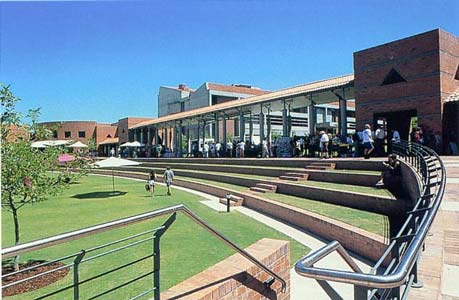FIP, as the global leader for pharmacy, has taken the initiative to build the “FIP World List of Pharmacy Schools”, which will be the most comprehensive and up-to-date list of pharmacy institutions from around the world. This global list is intended to guide all pharmacy stakeholders, from students to policymakers, in assessing the appropriateness and effectiveness of pharmacy education strategies. The availability, completeness and quality of FIP’s World List of Pharmacy Schools means it will provide a unique source of information for pharmaceutical workforce policies, procedures and plans.
Further background on the FIP World List of Pharmacy Schools:
The FIP World List of Pharmacy Schools is an initiative to monitor pharmaceutical capacity and capability, similar to those of many other global organisations, such as the World Medical Schools List held by the World Medical Association. Given 2021 is the World Health Organization’s Year of Health and Care Workers, the need for our global organisations to demonstrate increased capacity in all health workers is key to ensure our professions are not further diminished but amplified.
FIP is a founder member of the World Health Professions Alliance (WHPA) with doctors, nurses, dentists, and physiotherapists. All WHPA members have been requested to feedback their schools’ status to the WHO as part of pandemic preparedness, and FIP having a list of accredited pharmacy schools will help to identify where schools may be needed and created to ensure long-term pharmaceutical workforce capacity.

Curtin University of Technology
School of Pharmacy
Pharmacists are involved in the development, testing, manufacture and distribution of medicines and the monitoring of drug therapy. Their role in the pharmaceutical and health care industries is expanding. In the community, pharmacists are frequently becoming the first medical professional consulted on health issues. This course, which is built on more than a century of pharmacy training, offers you a long tradition of practical and theoretical grounding in the discipline. You will benefit from a hands-on approach, utilising a range of laboratories and facilities to enhance your learning and develop essential practical skills.
This course is structured into three streams: chemistry, biological sciences, and pharmaceutics and pharmaceutical practice. The chemistry stream will provide you with a sound chemical foundation in your first year. This is applied in the areas of pharmaceutical, medicinal, and biological chemistry in your second and third years. You will also study pharmacognosy (the study of natural drugs), quality assurance of pharmaceuticals and toxicology.
The biological sciences stream includes the study of human biology and physiology in your first year. It provides the basis for studies in microbiology and biochemistry, leading to pharmacology (dealing with the preparation, uses and effects of drugs), chemotherapy (the treatment of disease by means of chemicals which have a specific toxic effect upon the disease-producing microorganisms or which selectively destroy cancerous tissue) and pharmacokinetics (the process by which a drug is absorbed, distributed, metabolised, and eliminated by the body) in later years.
The pharmaceutics and pharmaceutical practice stream encompasses the science of dosage form design (pharmaceutics) and the day-to-day practice of being a pharmacist (pharmaceutical practice).
In your final year you will focus on practice-based learning, developing clinical and practice-based skills within community and hospital settings. You may also be given the opportunity to undertake an honours program to extend your knowledge of current academic research methodology in pharmacy.
